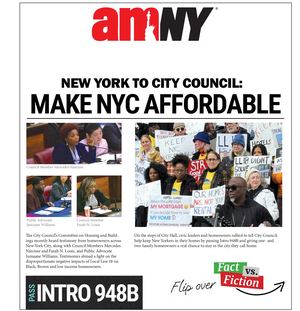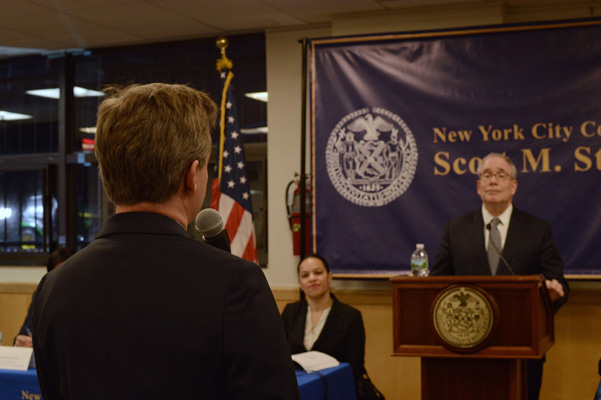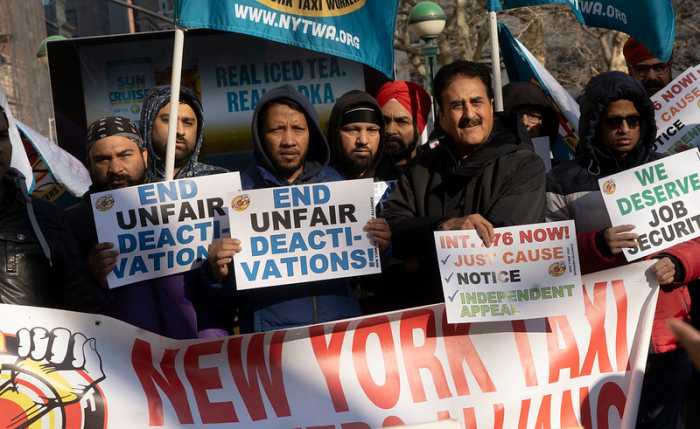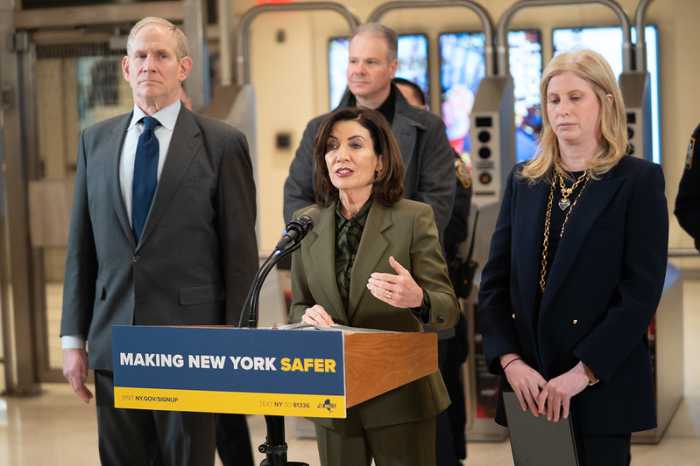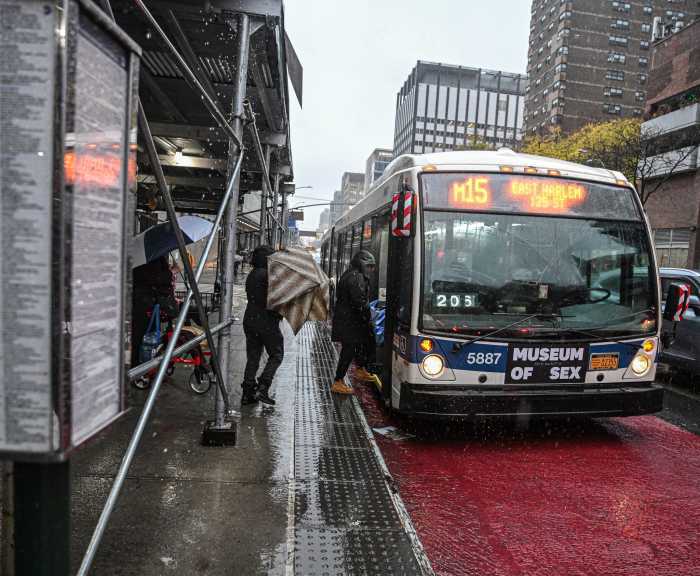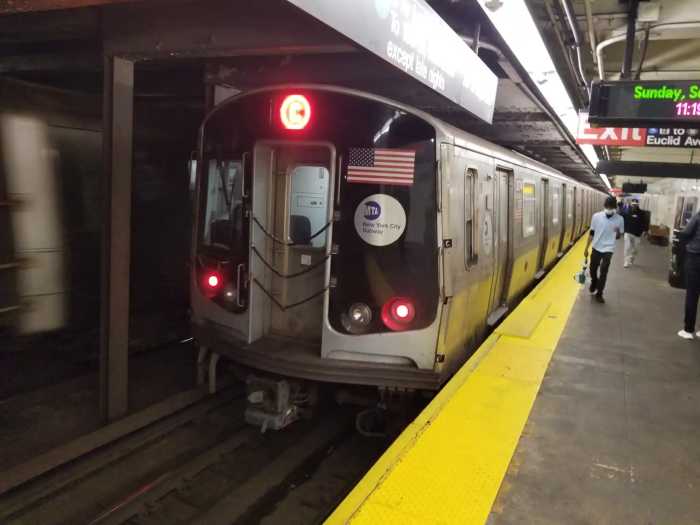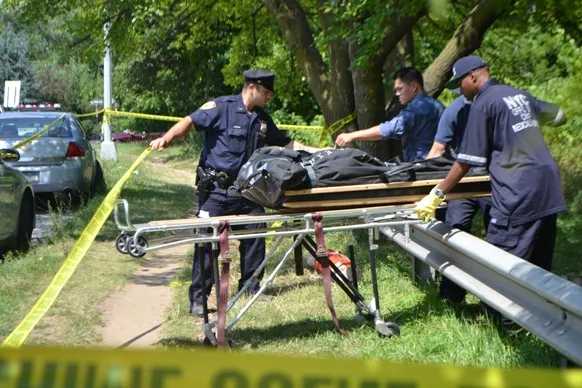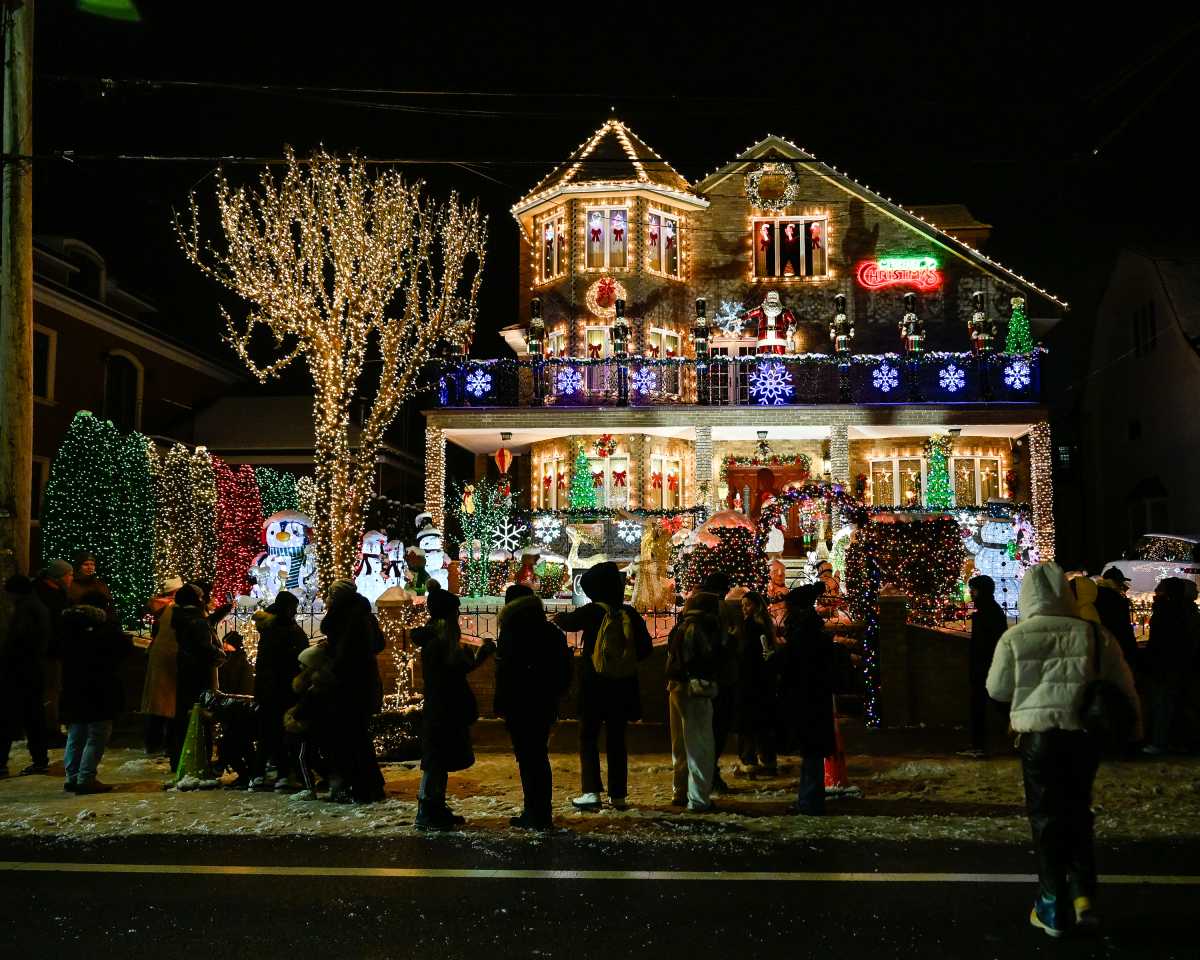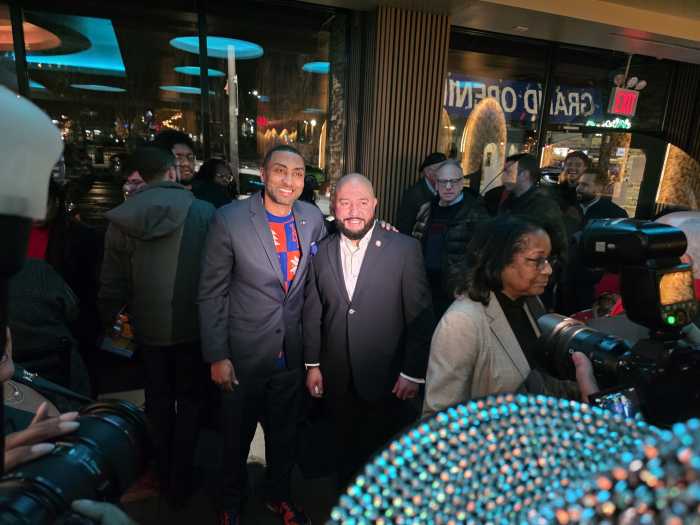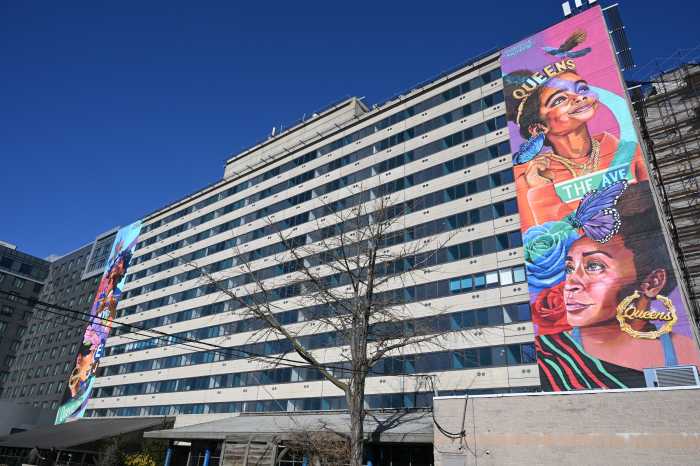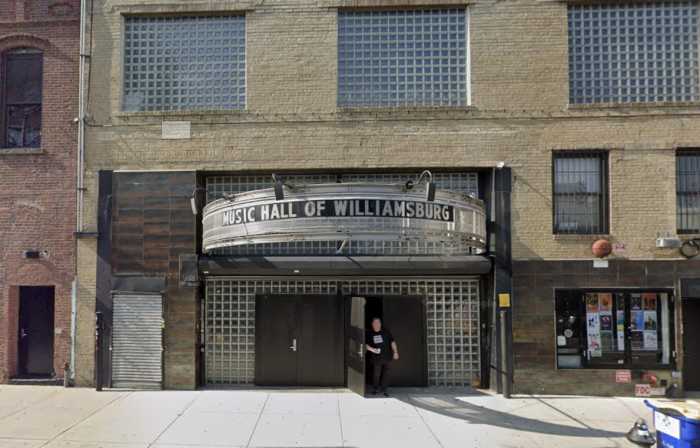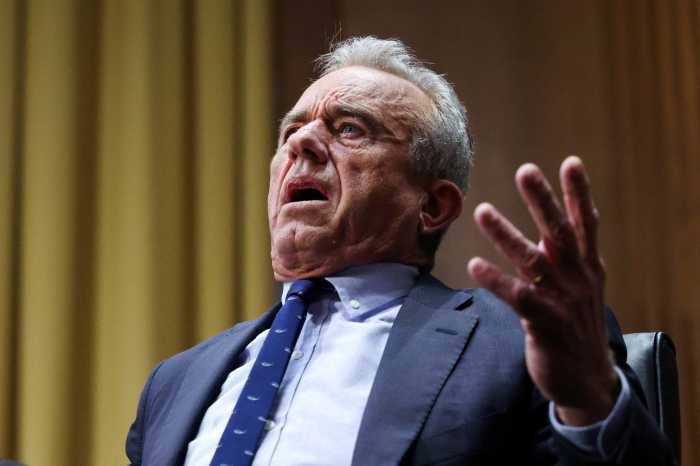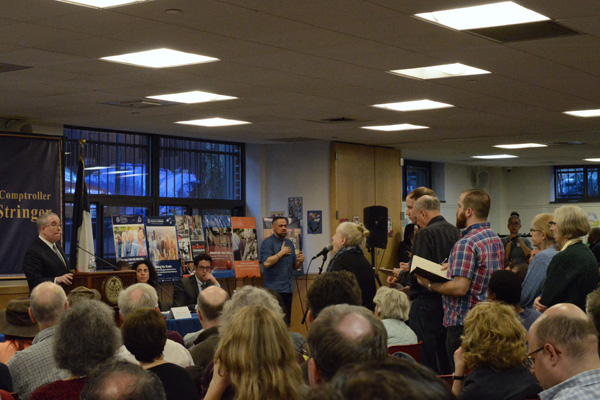
BY JACKSON CHEN | At an Upper West Side town hall hosted by City Comptroller Scott Stringer, affordable housing took center stage as the chief concern among neighborhood residents who lined up to air their grievances.
On April 6, Stringer invited the community to the Goddard Riverside Community Center on Columbus Avenue at West 88th Street to hear their concerns, which also included President Donald Trump’s impact on New York City, the decline of local small businesses, and the inadequacy of transportation options.
Before passing the mic to the public, Stringer said his office is currently focused on using his influence as one of the nation’s leading institutional investors in managing the city’s pension funds to press corporations to adopt climate-friendly policies and create greater diversity among their boards of directors.
“You basically have the same guys who went to the same schools in Connecticut,” Stringer said. “These corporate boards are too male, too pale… and they’re too stale. They look like me with better suits.”
Corporate leaders, he argued, need to better understand the value that women and people of color can bring to the table in steering companies toward better management.
But a good deal of the conversation that night revolved around questions about the city’s affordable housing stock, particularly on the Upper West Side. Stringer fielded questions from how rent-regulated and rent-stabilized apartments are kept track of to ways of bringing more affordable housing developments into the community.
Josh Pinkerton, a resident of West 76th Street, said that the city is currently in a housing crisis, but it is communities like East New York and East Harlem that are bearing the brunt of addressing the problem.
“We need more housing at every income level and every neighborhood,” Pinkerton said. “It’s unfair to ask these low-income neighborhoods to shoulder all the burden of affordable housing in New York.”
Stringer said rezoning proposals in different neighborhoods are a step in the right direction but not enough to address the situation. When it came to building housing that is actually affordable, the comptroller said, community-based planning should be prioritized and developers shouldn’t be allowed to build whatever they want simply by including some units of affordable housing.
“You don’t rely on Midtown luxury developers who build housing for 40 stories and then get a sprinkling of affordable housing that’s unaffordable for so many communities,” Stringer said.
He pointed to more than 1,000 city-owned properties, discovered in one of his audits, that could potentially be turned into affordable housing developments.
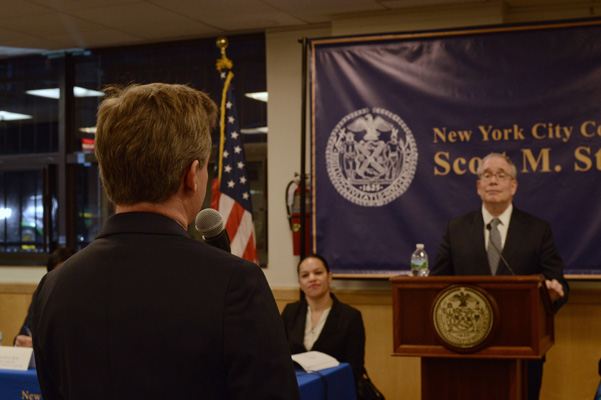
But it’s not just affordable housing that’s squeezed by the real estate market, said Community Board 7 member Mel Wymore, who recently announced a run for the Upper West Side’s City Council District 6 seat. Small business, as well, is threatened, with its continual decline evident.
“The fact [is] our small businesses are being wiped out of our communities,” he said. “If you walk down any avenue of the Upper West Side, you’ll see vacancy after vacancy after vacancy.”
Stringer acknowledged the problem, especially on Columbus and Amsterdam Avenues, and explained he created his Red Tape Commission specifically to understand what local businesses go through. The comptroller also drew on the experiences he had with small businesses in his days as Manhattan borough president, when he was often invited to grand openings.
“But here’s the thing, the politicians come and cut the ribbon,” Stringer said. “And a group of city officials come the following day — the taxman, the consumer affairs department, the Department of Finance, the health department. What they basically do is try to shut the small business down.”
Stringer said his commission formulated 60 recommendations, including more transparency in how licenses and permits are issued, to help local business survive.
As comptroller, Stringer has been aggressive in carrying out audits investigating how efficiently and effectively city agencies are carrying out their responsibilities. Seniors in the crowd complained about the lack of service from Access-A-Ride and also about the rapid proliferation of the Citi Bike program throughout the Upper West Side, both issues Stringer said his office is considering as areas for audit investigations.
No town hall these days would be complete without complaints about Trump and his negative impact on New York City. From questions about his immigration policies, to budget cuts for supportive programs, and even to the money spent on protecting Trump Tower, Stringer offered his reaction to upset residents who voiced concerns.
When Madelyn Innocent, CB7’s Public Housing Task Force chair, said she worried about the loss of federal funding for public housing, Stringer said the city should create new funding streams to shore up the New York City Housing Authority.
The comptroller contrasted the challenges facing the city’s public housing with the $24 million it has spent protecting Trump Tower, First Lady Melania Trump, and the couple’s son, Barron, in the two months following the inauguration. While acknowledging the need to ensure their safety, Stringer said the federal government should pay the city back in full.
“We need to be reimbursed by the federal government,” Stringer said. “We are a city under potential for terrorism attacks, it’s a reality. And at some point, we break the bank.”
Regarding Trump’s disruptive handling of the country’s immigration policies, Stringer said that newcomers to this country contribute heavily to the tax base and the businesses in New York.
“This country could not run without the immigrants who come here and who have been here,” Stringer said. “This is true in New York, but around the country.”
